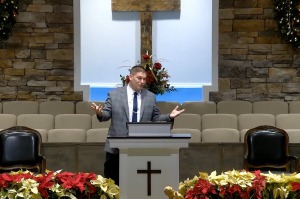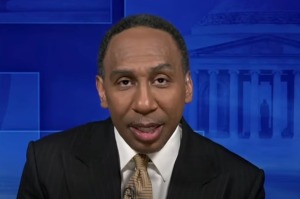Progressive Institute Calls for More Talk on Sexuality from Pulpit
Too many religious leaders are not engaging issues of "sexual justice" and other sexuality matters from the pulpit, a multifaith organization claims.
Seeking a turnaround, the Religious Institute wants leaders of all faith communities to become "sexually healthy" and meet the sexuality needs of congregants within the next decade.
"Sexuality & Religion 2020 articulates the vision that by the year 2020, all faith communities will be sexually healthy, just and prophetic," said the Rev. Debra W. Haffner, executive director of the Religious Institute, in a statement. "Achieving this vision is the work of clergy and congregations, of denominations and seminaries, and of advocates and activists of all faiths who believe we must change the conversation around sexuality and religion in America."
The Westport, Conn.-based organization released its report last week. Sexuality & Religion 2020 highlights "a disconnect between sexuality and religion" in American faith communities and alleges that most clergy are silent on such issues as sexuality education, homosexuality, sexual brokenness and sexual abuse.
More than half (57 percent) of mainline Protestant clergy seldom or never speak out on LGBT (lesbian, gay, bisexual, transgender) issues and nearly three quarters (74 percent) seldom or never address sex education in public schools, the institute points out, citing a 2008 survey.
A Religious Institute survey of progressive Christian, Jewish and Unitarian Universalist clergy found that nearly 40 percent had not preached on sexual orientation in at least two years, 70 percent had not addressed reproductive justice and three-quarters had not addressed sex education from the pulpit.
The institute is pushing for full LGBT inclusion in the church as well as educating clergy to be prepared to deal with sexuality matters.
"At a time when many denominations and faith communities are embroiled in sexuality debates, there is an urgent need for religious leaders who understand the connections among sexuality, faith and justice, and are willing to give voice to these issues in their congregations and in the public square," the report states.
The progressive institute acknowledges that there has been "progress" in the last decade with more mainline Protestant denominations, along with those from several evangelical Christian bodies, the Roman Catholic Church, and Jewish and Muslim traditions promoting the full inclusion of gays and lesbians. According to the report, more than 3,300 congregations in the U.S. are "official welcoming congregations" for LGBT persons, a nearly threefold increase since 2003.
Also in the last decade, at least a dozen Christian denominations and Jewish movements have allowed their clergy to perform marriage or union ceremonies for same-sex couples. In 1999, only clergy from the Unitarian Universalist Association were sanctioned to perform same-sex unions.
Though the institute marks progress, many of those denominations that have been wracked by such issues as homosexuality have seen dwindling membership in that same time period. The latest yearbook released by the National Council of Churches shows high membership losses in the Presbyterian Church (USA), the Evangelical Lutheran Church in America, and The Episcopal Church, among others.
The Religious Institute report grew out of discussions among 23 clergy, theologians and religious leaders from Christian, Jewish, Muslim and Unitarian Universalist traditions who gathered last summer to "assess progress" on the matter of sexuality and religion and determine priorities for the next 10 years.
Among their listed goals is to make "sexual justice" central to the social justice agenda of progressive religious leaders by the year 2020 and to have seminaries integrate sexuality education and sexual justice in their curricula.





























